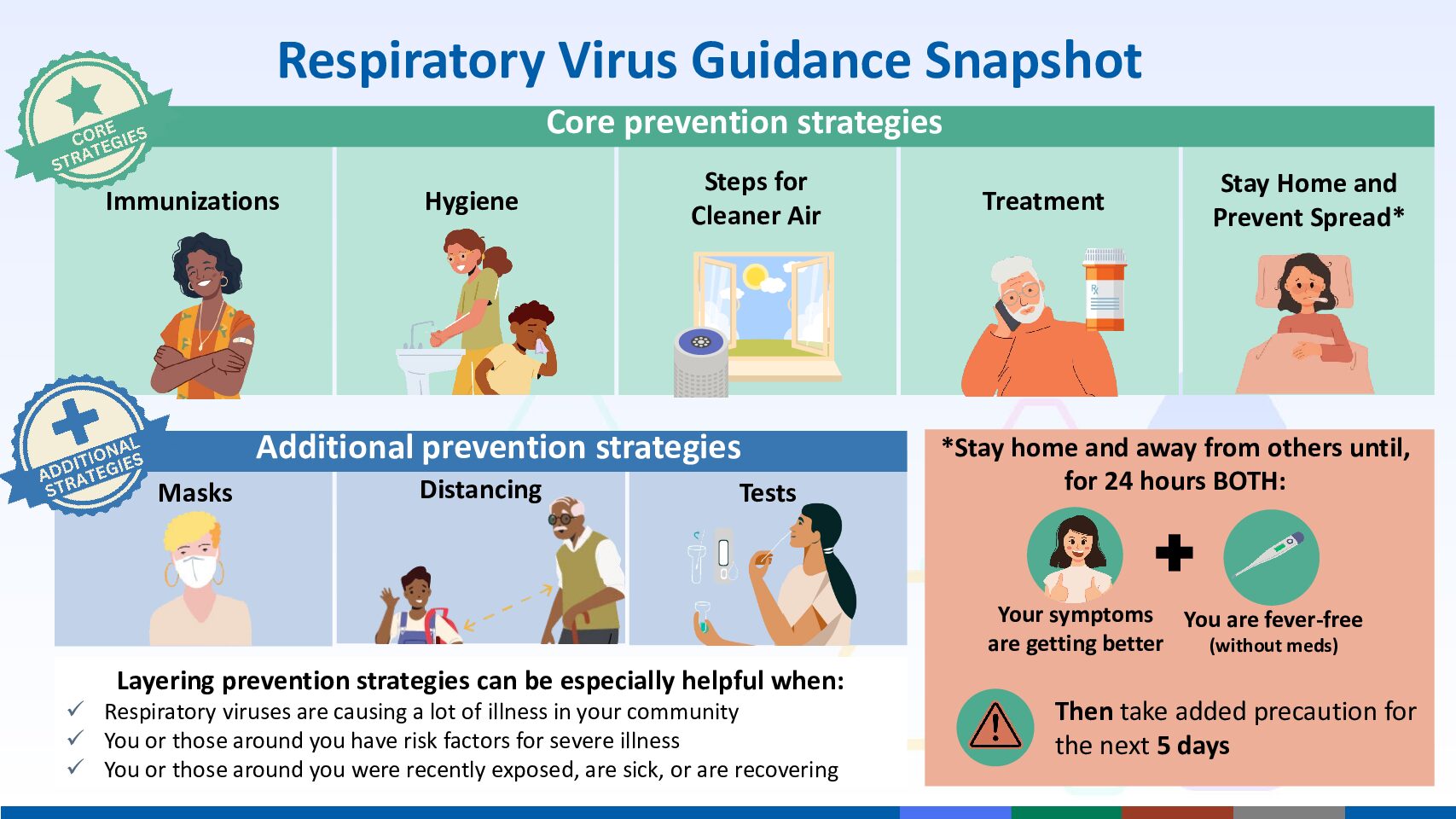The CDC has released updated guidance for COVID-19 and other respiratory viruses such as flu and RSV.
People who are experiencing symptoms of any respiratory illness should stay home and stay away from others until symptoms have been improving for 24 hours and they have not had a fever (without medications) for 24 hours. Then they should take additional precautions for 5 days: this includes wearing a well-fitting mask around others, physical distancing and avoiding crowded areas, and staying away from people who are more likely to have severe illness (like older adults and those with compromised immune systems).
Core prevention strategies for preventing the spread of respiratory illness include staying up to date on immunizations, practicing good hygiene such as washing hands and covering coughs and sneezes, cleaning surfaces, increasing ventilation, seeking treatment for symptoms, and staying home when sick. Learn more about these strategies from the CDC.
These strategies are especially helpful when a lot of illnesses are happening in our community, for those who have risk factors for severe illness, and when you or those around you were recently exposed to a respiratory virus, or are sick or recovering from a respiratory virus.
Symptoms of COVID-19 can be mild or very severe; they include fever, cough, shortness of breath, fatigue, muscle or body aches, headache, new loss of taste or smell, sore throat, congestion or runny nose, nausea or vomiting, and diarrhea. Some of these symptoms can seem similar to allergies or other illnesses, but people who have any of these symptoms should also consider COVID-19 as a cause and seek testing either using an at-home test kit or from a healthcare provider.
Most people can recover from COVID-19 with rest, fluids, and over-the-counter medicines, but those who are at high risk for getting very sick should seek treatment from a healthcare provider that can reduce the chances of severe illness. Anyone who has trouble breathing, persistent pain or pressure in the chest, new confusion, inability to wake or stay awake, or pale, gray, or blue-colored skin, lips, and nail beds should call 911 or seek emergency care immediately.
Most people ages 6 months and older should get a current flu and COVID-19 vaccine – these are widely available from commercial pharmacies and many healthcare providers. To prevent severe RSV infection in infants, the CDC recommends either the pregnant mother receives an RSV vaccine or the infant receives an immunization with an RSV monoclonal antibody. Adults ages 60 and older should talk to their healthcare provider about whether an RSV vaccine is right for them.
For more information about COVID-19 symptoms, testing, guidance, or vaccines, call 884-3135 during the health department’s normal business hours (Monday-Friday, 8:30am-5:00pm).

